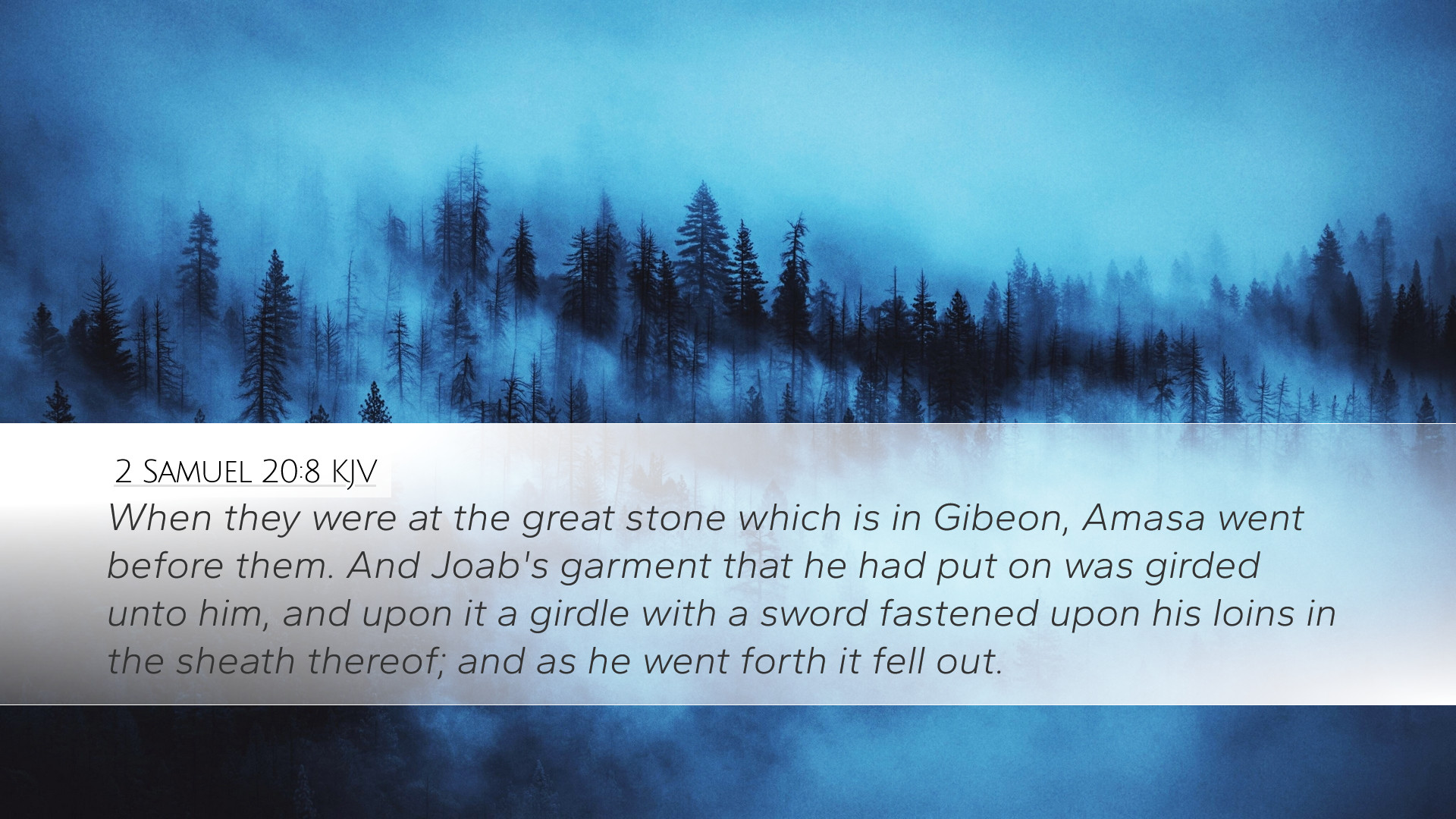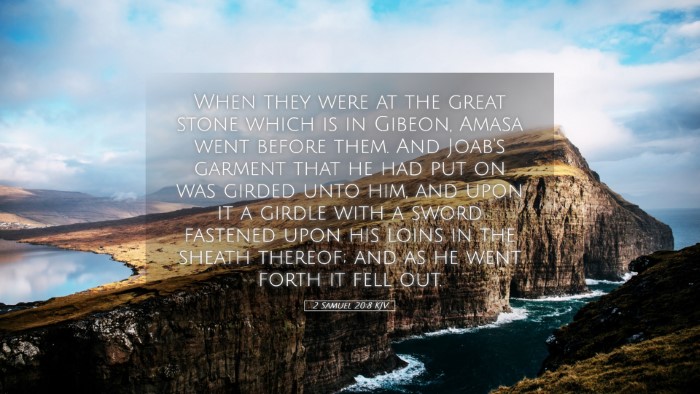Commentary on 2 Samuel 20:8
Verse: "When they were at the great stone which is in Gibeon, Amasa went before them. And Joab's garment that he had put on was girded unto him, and he had a dagger in his hand: and he went out to slay Amasa." (2 Samuel 20:8)
Contextual Overview
This verse occurs during a turbulent period in David's reign, reflecting the ongoing strife following Absalom's rebellion. Amasa, appointed by Absalom, assumed a leadership role in an army that opposed David. Joab, the commander of David's forces, confronts Amasa, setting the stage for a treacherous act. Understanding this context is crucial for grasping the deeper implications of this narrative.
Insights from Public Domain Commentaries
Matthew Henry's Commentary
Henry stresses the tragic betrayal that unfolds in this passage. Joab's approach to Amasa is marked by deceit and violence. Henry notes the irony of Amasa leading an army purposed for David’s destruction only to find himself cut down by Joab, the very man who remained loyal to David through all the tumult. He highlights the significance of Amasa’s presence at Gibeon—a location of historical importance in Israel's military history where critical decisions were made.
Albert Barnes' Notes on the Bible
Barnes elaborates on the character dynamics presented in this verse. He observes Amasa’s position and movement toward Joab’s forces, interpreting it as a moment filled with tension and impending doom. Joab’s secretive carry of a dagger serves to underline his intentions and the premeditated nature of the betrayal. Barnes argues that this act can serve as a warning regarding those who seem to ascend to places of power yet harbor hidden motives against God’s anointed leaders.
Adam Clarke's Commentary
Clarke offers a critical view of the moral implications of Joab's actions. He examines the concept of loyalty and treachery, suggesting that Joab’s actions reflect his standing as a morally ambiguous character, driven more by personal ambition than by allegiance to David. Clarke proposes that the narrative illustrates a broader theme in Scripture about the consequences of power struggles and betrayal, raising the question of how leaders navigate the murky waters of loyalty and ambition.
Thematic Reflections
The narrative encapsulates various themes pertinent to both ancient and modern audiences, including:
- Betrayal: The act of betrayal initiated by Joab against Amasa poses deep moral questions for leaders. It recalls the treachery of Ahithophel and echoes throughout scripture, highlighting the complexities of human relationships.
- Power and Ambition: Joab’s ambition drives him to eliminate a rival for the sake of personal gain, revealing the darker side of leadership dynamics. The narrative serves as a cautionary tale to contemporary leaders.
- Divine Justice: The vengeful undertones in Joab’s actions remind readers of the ultimate accountability that leaders have before God, suggesting that divine justice will not be ignored regardless of human betrayal.
Application for Pastors and Leaders
This passage invites reflection on the moral integrity of leaders. Pastors and church leaders can draw parallels between Joab's internal conflicts and the challenges their congregations face today. The struggle for power, loyalty, and the temptation towards betrayal are relevant as they navigate their leadership roles.
Concluding Thoughts
The assassination of Amasa by Joab is not merely a historical recounting but a profound reflection on the nature of power, treachery, and divine providence. As we study this passage, may we be reminded of the importance of integrity and faithfulness in leadership, keeping our hearts aligned with God’s purposes amidst the tumult of human ambition.


